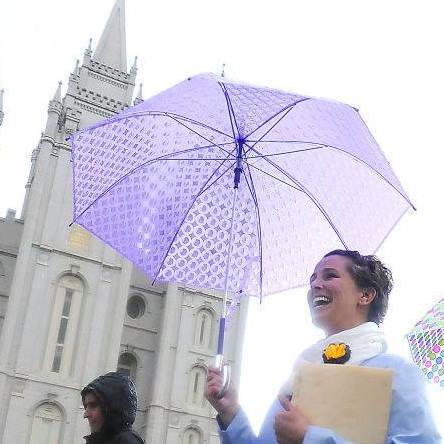I remember my first calling. I was going to be the Beehive Secretary and I was incredibly excited. In my eyes, this was a chance to serve my friends and to help my leaders. But more than that, a calling was a signal to my ward that I was truly part of our faith community. I enjoyed the same feeling of full fellowship when I held my first temple recommend in my hand. It was a physical symbol of how hard I had worked to gain a testimony and be worthy to enter the House of the Lord.
Every member of the Church of Jesus Christ of Latter-day Saints can appreciate these moments. We are told that callings are a privilege and a chance to serve others as we grow in the gospel. And we are often reminded that we should always have a current temple recommend, even if we are too far from a temple to attend. These are the symbols of our faith. Recognizing their cultural importance, one can only imagine the pain and damage caused by instances of informal discipline in our Church, where members are threatened with the loss of one or both of these symbols.
While many of us understand the fear of disfellowship or excommunication, we are learning that informal discipline can be just as painful. Where formal discipline follows a set of established rules and comes with a sense of finality, informal discipline is arbitrary and ambiguous. There are no rules laid out in the Church Handbook of Instruction for removing a person from a calling as a Sunday school instructor because of anonymous complaints about the teacher’s Facebook posts. A woman has no timeline for being asked to be a Relief Society teacher again when she was released because she has a profile at www.OrdainWomen.org. And few of us have the wherewithal or presence of mind to push back when we are asked additional questions—questions not listed in the Church Handbook of Instruction—in the course of a temple recommend interview. Members are placed in the position of having to choose between their public support of women’s ordination and the ability to participate in or even attend the temple wedding of a family member. In fact, this absence of rules leaves individual members at the mercy and whim of their local leaders.
I want to stress that of the more than 600 men and women who have submitted profiles, barely 20 have experienced this sort of informal discipline; in fact, many members who support women’s ordination serve in presidencies, as teachers, and more. But the time has come to speak openly about it. When an individual loses a calling or recommend as a result of support for the ordination of women, at first she feels shock. She thinks “Surely, my bishop has made a mistake; he knows me! He has heard my testimony and seen my service! I just need to talk to him.” But after one or two failed attempts to explain her heart, the shock wears off and she recognizes it for what it actually is: informal discipline is a public punishment. It is a scarlet A that she will wear every week. It is a way to brand a member as a threat, to tell the people with whom she worships that she is not their sister. Or worse, it is a warning to others that they must remain quiet and distant or they will suffer her same fate.
For most supporters of Ordain Women, the discipline is a faint shadow. In truth, over the last two years, I have been pleasantly surprised by stories of local leaders who have listened carefully to women as they discussed the question of gender inequality in our Church. Most bishops and stake presidents not only welcome the participation of the women in their congregations who are questioning gender inequality in the Church, but they also listen. The faith and humility of these leaders should be an example to others. They have remembered the new commandment, given by the Savior, that we love one another, as He has loved us. When our leaders act out of love, they need not fear us nor we them.
Honoring our past,
Envisioning our future
Debra Jenson, the author of this post, is the 2015 Chairperson on the Executive Board of Ordain Women.






